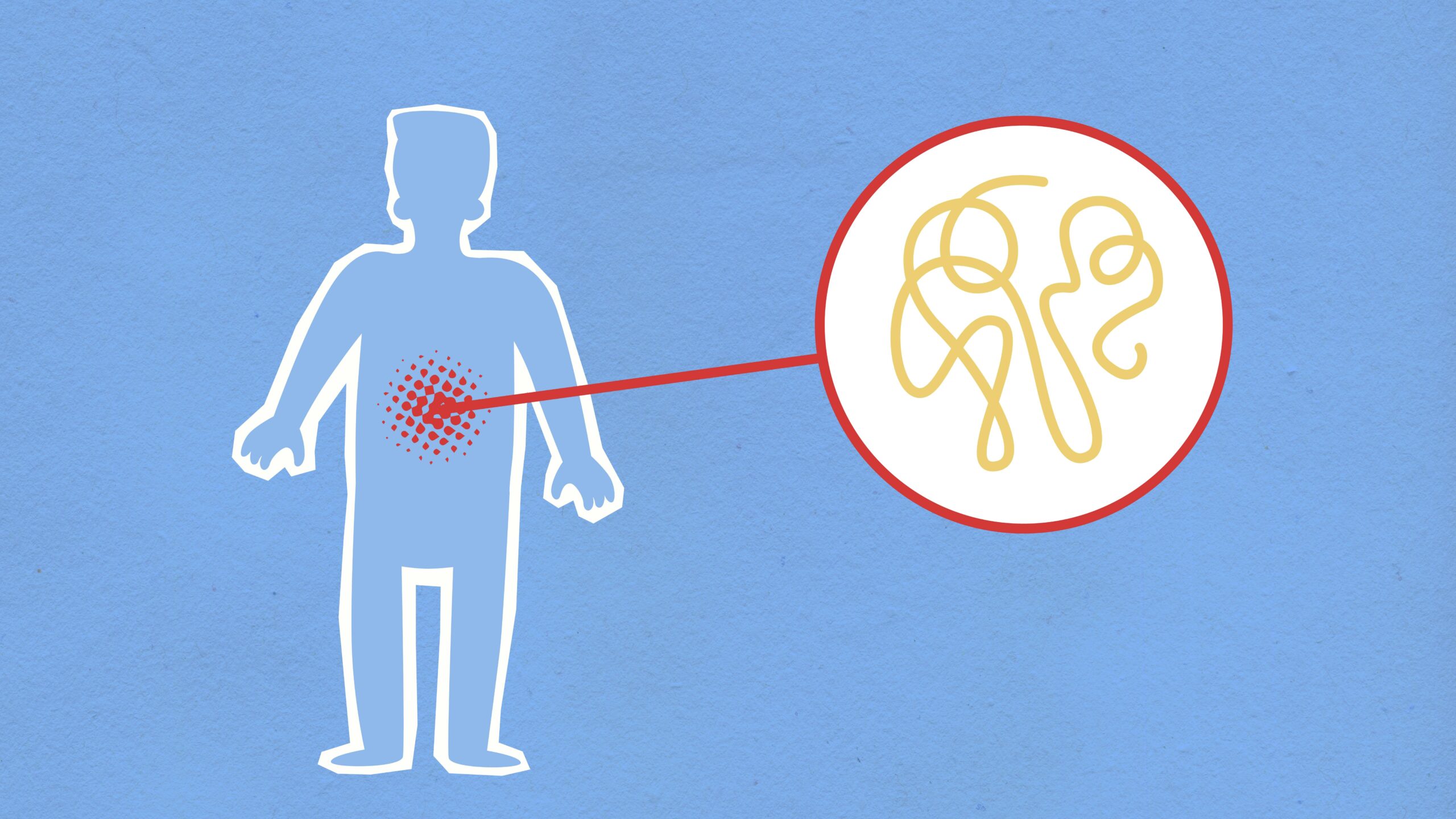The healthcare landscape is transforming rapidly, moving from reactive treatment to proactive prevention through advanced predictive health algorithms that analyze personal data to forecast potential health risks.
🔮 The Dawn of Personalized Predictive Healthcare
We stand at the threshold of a healthcare revolution where artificial intelligence and machine learning converge to create unprecedented opportunities for wellness optimization. Predictive health algorithms represent a paradigm shift from traditional medicine’s “wait and treat” approach to a sophisticated system that anticipates health challenges before they manifest into serious conditions.
These intelligent systems process vast amounts of health data—from genetic information and lifestyle habits to environmental factors and medical history—to identify patterns invisible to the human eye. The result is a personalized health forecast that empowers individuals to take preventive action, potentially adding years to their lives and dramatically improving their quality of life.
The power of prediction in healthcare isn’t science fiction anymore. Major healthcare institutions worldwide are already implementing these technologies, witnessing remarkable improvements in patient outcomes while simultaneously reducing healthcare costs. This dual benefit makes predictive health algorithms one of the most promising innovations in modern medicine.
Understanding the Mechanics Behind Predictive Health Technology
At their core, predictive health algorithms function by identifying correlations and patterns within massive datasets. Machine learning models are trained on millions of patient records, learning to recognize early warning signs that precede various health conditions. These systems become more accurate over time, continuously refining their predictions as they process more information.
The data sources feeding these algorithms are remarkably diverse. Wearable devices track heart rate variability, sleep patterns, and physical activity levels. Electronic health records provide comprehensive medical histories. Genetic testing reveals hereditary predispositions. Environmental sensors monitor air quality and exposure to toxins. When integrated and analyzed collectively, these data streams create a holistic picture of an individual’s health trajectory.
The Three Pillars of Predictive Health Analytics
Modern predictive health systems rest on three fundamental pillars that work in harmony to deliver accurate forecasts and actionable insights:
- Data Collection and Integration: Gathering information from multiple sources including medical devices, lab results, lifestyle tracking apps, and genetic profiles to create comprehensive health profiles.
- Pattern Recognition and Analysis: Applying advanced machine learning algorithms to identify subtle correlations and trends that indicate potential health risks or opportunities for intervention.
- Personalized Recommendations: Translating analytical insights into practical, individualized guidance that people can implement in their daily lives to optimize wellness outcomes.
💡 Real-World Applications Transforming Healthcare Today
The practical applications of predictive health algorithms span virtually every aspect of medical care, from chronic disease management to mental health support. These technologies are already making tangible differences in people’s lives across numerous healthcare domains.
Cardiovascular Disease Prevention
Heart disease remains the leading cause of death globally, but predictive algorithms are changing this narrative. By analyzing factors like blood pressure trends, cholesterol levels, inflammation markers, lifestyle habits, and genetic predispositions, these systems can forecast cardiovascular events years in advance. This early warning allows for targeted interventions—medication adjustments, dietary changes, exercise programs—that can prevent heart attacks and strokes before they occur.
Studies have shown that algorithm-guided cardiovascular prevention programs can reduce major cardiac events by up to 30% compared to standard care protocols. This represents thousands of lives saved and millions in healthcare costs avoided annually.
Cancer Detection and Prevention Strategies
In oncology, early detection dramatically improves survival rates. Predictive health algorithms excel at identifying individuals at elevated risk for specific cancers, enabling more aggressive screening protocols for high-risk populations while reducing unnecessary testing for low-risk groups. This precision approach optimizes healthcare resources while maximizing detection of treatable early-stage cancers.
Algorithms analyzing genetic markers, family history, lifestyle factors, and environmental exposures can predict breast, colorectal, lung, and prostate cancer risks with impressive accuracy. Some systems even analyze medical imaging data to detect suspicious patterns that might escape human radiologists, catching cancers at their most treatable stages.
Diabetes Management and Prevention
Type 2 diabetes prevention represents another success story for predictive health technology. Algorithms can identify pre-diabetic individuals years before traditional diagnostic criteria are met, creating opportunities for lifestyle interventions that can prevent or delay disease onset entirely. For those already diagnosed, predictive systems optimize glucose management by forecasting blood sugar fluctuations based on meal timing, physical activity, stress levels, and medication schedules.
🏥 The Role of Artificial Intelligence in Wellness Optimization
Artificial intelligence brings unprecedented sophistication to health prediction by processing variables and relationships far too complex for traditional statistical methods. Deep learning networks can simultaneously consider thousands of factors, weighing their interactions and cumulative effects to generate remarkably accurate health forecasts.
Natural language processing algorithms extract valuable insights from unstructured data sources like physician notes, patient-reported symptoms, and medical literature. Computer vision systems analyze medical images with superhuman precision. Reinforcement learning optimizes treatment protocols by learning from outcomes across thousands of patients.
Personalization at Scale
One of AI’s greatest contributions to predictive health is its ability to deliver deeply personalized insights to millions of people simultaneously. While human healthcare providers can only manage a limited number of patients, AI systems scale infinitely, providing individualized guidance to entire populations while continuously learning and improving.
This personalization extends beyond basic demographic factors. Advanced algorithms account for genetic variations, microbiome composition, metabolic rates, stress responses, and countless other variables that make each person’s health journey unique. The result is guidance tailored specifically to your biology, lifestyle, and circumstances—not generic one-size-fits-all recommendations.
Privacy, Security, and Ethical Considerations 🔒
The power of predictive health algorithms depends entirely on access to sensitive personal information, raising legitimate concerns about privacy and data security. Healthcare data represents some of the most intimate information about our lives, and protecting it must be paramount as these technologies advance.
Robust encryption, anonymization techniques, and strict access controls form the foundation of responsible predictive health systems. Leading platforms implement multiple security layers, ensuring that individual health data remains confidential while still contributing to algorithm training and improvement.
The Ethics of Health Prediction
Beyond security concerns, predictive health raises profound ethical questions. What happens when an algorithm predicts a serious health condition years in advance? How do we prevent discrimination based on predicted health risks? Who owns the insights generated from personal health data?
Regulatory frameworks are evolving to address these challenges, establishing guidelines that balance innovation with protection. Transparent algorithms, patient consent mechanisms, and equitable access provisions are becoming standard requirements for predictive health technologies entering the healthcare marketplace.
📱 Mobile Health Apps Harnessing Predictive Power
The smartphone revolution has democratized access to predictive health technologies, putting sophisticated health forecasting capabilities directly into consumers’ hands. Mobile health applications leverage device sensors, user-input data, and cloud-based AI to deliver personalized health predictions and recommendations.
These apps track everything from sleep quality and stress levels to nutrition and exercise patterns, using this information to generate personalized wellness forecasts. Some applications specialize in specific conditions like diabetes or hypertension, while others take a holistic approach to overall wellness optimization.
The accessibility of mobile health apps is breaking down traditional barriers to preventive care, particularly for underserved populations with limited access to conventional healthcare services. A smartphone becomes a personal health advisor, providing evidence-based guidance traditionally available only through expensive medical consultations.
🌍 The Global Impact of Predictive Health Innovation
From a population health perspective, predictive algorithms offer unprecedented opportunities to improve public health outcomes while controlling spiraling healthcare costs. By shifting focus from expensive reactive treatments to cost-effective preventive interventions, these technologies promise to make healthcare systems more sustainable and effective.
Developing nations stand to benefit particularly dramatically. In regions with limited healthcare infrastructure, mobile predictive health applications can deliver sophisticated medical guidance to populations who might never see a physician. This technology democratization has profound implications for global health equity.
Economic Benefits Beyond Healthcare Savings
The economic impact extends beyond direct healthcare cost reductions. Healthier populations are more productive, miss fewer workdays, and contribute more robustly to economic growth. Preventing chronic diseases before they develop means people can work longer, maintain independence later in life, and avoid the devastating financial impacts of serious illness.
Insurance companies are taking notice, with many now offering premium reductions for customers who engage with predictive health programs and demonstrate healthy behaviors. This alignment of incentives creates a virtuous cycle where individuals, insurers, and healthcare systems all benefit from prevention-focused approaches.
⚡ Overcoming Implementation Challenges
Despite their immense promise, predictive health algorithms face significant implementation hurdles. Data fragmentation remains a major obstacle, with health information scattered across incompatible systems that don’t communicate effectively. Creating comprehensive health profiles requires seamless data integration—a technical challenge that the healthcare industry continues to work toward solving.
Algorithm bias represents another critical concern. If training data doesn’t adequately represent diverse populations, resulting predictions may be less accurate for underrepresented groups. Addressing this requires conscious efforts to ensure training datasets include sufficient diversity across racial, ethnic, age, and socioeconomic categories.
Building Trust Through Transparency
For predictive health technologies to achieve widespread adoption, they must earn public trust. This requires transparency about how algorithms work, what data they use, and the accuracy of their predictions. Healthcare providers and patients alike need to understand both the capabilities and limitations of these systems to use them appropriately.
Educational initiatives are essential, helping both medical professionals and the general public understand how to interpret and act on algorithmic predictions. A prediction is only valuable if it leads to appropriate action, which requires health literacy and accessible interventions.
🚀 The Future Landscape of Predictive Wellness
Looking ahead, predictive health algorithms will become increasingly sophisticated and integrated into everyday life. Continuous health monitoring through wearable sensors and ambient devices will provide real-time data streams, enabling algorithms to detect health changes immediately rather than during periodic checkups.
Integration with smart home technology will create health-optimized living environments that automatically adjust lighting, temperature, air quality, and other factors based on your current health status and predictive needs. Your home becomes an active participant in your wellness journey, responding dynamically to support your health goals.
Precision Medicine Powered by Prediction
The convergence of predictive algorithms with precision medicine promises treatments tailored not just to disease categories but to individual patients’ unique biological profiles. Algorithms will forecast which treatments are most likely to work for specific individuals, eliminating the current trial-and-error approach to medication selection.
Pharmacogenomics—analyzing how genetic variations affect drug responses—will become standard practice, with algorithms predicting optimal medications and dosages based on genetic profiles. This precision reduces side effects, improves treatment efficacy, and accelerates the path to wellness.
💪 Empowering Individuals Through Health Intelligence
Perhaps the most transformative aspect of predictive health algorithms is how they empower individuals to take control of their wellness journeys. Rather than passive recipients of healthcare services, people become active managers of their health, armed with personalized insights about their unique risks and opportunities.
This shift toward personal health ownership has profound psychological benefits. Understanding your health trajectory reduces anxiety about the unknown, while clear guidance about preventive actions provides a sense of control. People who engage with predictive health tools report feeling more confident about their health decisions and more motivated to maintain healthy behaviors.
The gamification elements common in health apps further enhance engagement, turning wellness optimization into an enjoyable challenge rather than a burdensome obligation. Progress tracking, achievement badges, and social features create positive reinforcement loops that sustain healthy behaviors over time.
🎯 Making Predictive Health Work For You
Integrating predictive health technologies into your wellness routine doesn’t require technical expertise or expensive equipment. Start by choosing reputable health tracking applications that align with your specific interests—whether that’s fitness optimization, chronic disease management, or general wellness improvement.
Consistency is crucial for predictive algorithms to generate accurate forecasts. Regular data input, whether manual logging or automatic sensor tracking, provides the information foundation these systems need. The more complete your health picture, the more valuable the predictions become.
Communicate with your healthcare provider about the insights generated by predictive health tools. While these technologies offer powerful supplementary information, they work best when integrated with professional medical guidance. Your doctor can help interpret predictions, order appropriate tests, and develop intervention strategies based on algorithmic forecasts.

The Convergence of Prevention and Prediction
We’re witnessing the emergence of a truly preventive healthcare paradigm where prediction and prevention work synergistically. Predictive algorithms identify risks while simultaneously recommending evidence-based interventions to mitigate those risks. This closed-loop system continuously monitors outcomes, refining predictions and adjusting recommendations based on what actually works for each individual.
This represents healthcare’s future—proactive, personalized, and prevention-focused. Rather than waiting for disease to strike and then fighting to restore health, we’ll increasingly prevent diseases from developing in the first place. This fundamental shift promises longer, healthier lives with fewer medical interventions and lower healthcare costs.
The technology enabling this transformation exists today and continues improving rapidly. Early adopters are already experiencing the benefits—catching health issues earlier, optimizing their wellness routines, and taking control of their health futures. As these technologies become more refined and accessible, their impact will only grow, fundamentally reshaping our relationship with health and wellness.
Predictive health algorithms represent more than technological innovation—they embody a philosophical shift in how we approach wellness. By harnessing the power of data, artificial intelligence, and personalized medicine, we’re unlocking unprecedented opportunities to live longer, healthier, and more vibrant lives. The future of wellness is predictive, personalized, and profoundly promising. 🌟
Toni Santos is a deep-biology researcher and conscious-evolution writer exploring how genes, microbes and synthetic life inform the future of awareness and adaptation. Through his investigations into bioinformatics, microbiome intelligence and engineered living systems, Toni examines how life itself becomes a field of awakening, design and possibility. Passionate about consciousness in biology and the evolution of living systems, Toni focuses on how life’s architecture invites insight, coherence and transformation. His work highlights the convergence of science, philosophy and emergent life — guiding readers toward a deeper encounter with their living world. Blending genetics, systems biology and evolutionary philosophy, Toni writes about the future of living systems — helping readers understand how life evolves through awareness, integration and design. His work is a tribute to: The intertwining of biology, consciousness and evolution The emergence of microbial intelligence within and around us The vision of life as designed, adaptive and self-aware Whether you are a scientist, thinker or evolving being, Toni Santos invites you to explore the biology of tomorrow — one gene, one microbe, one awakening at a time.




